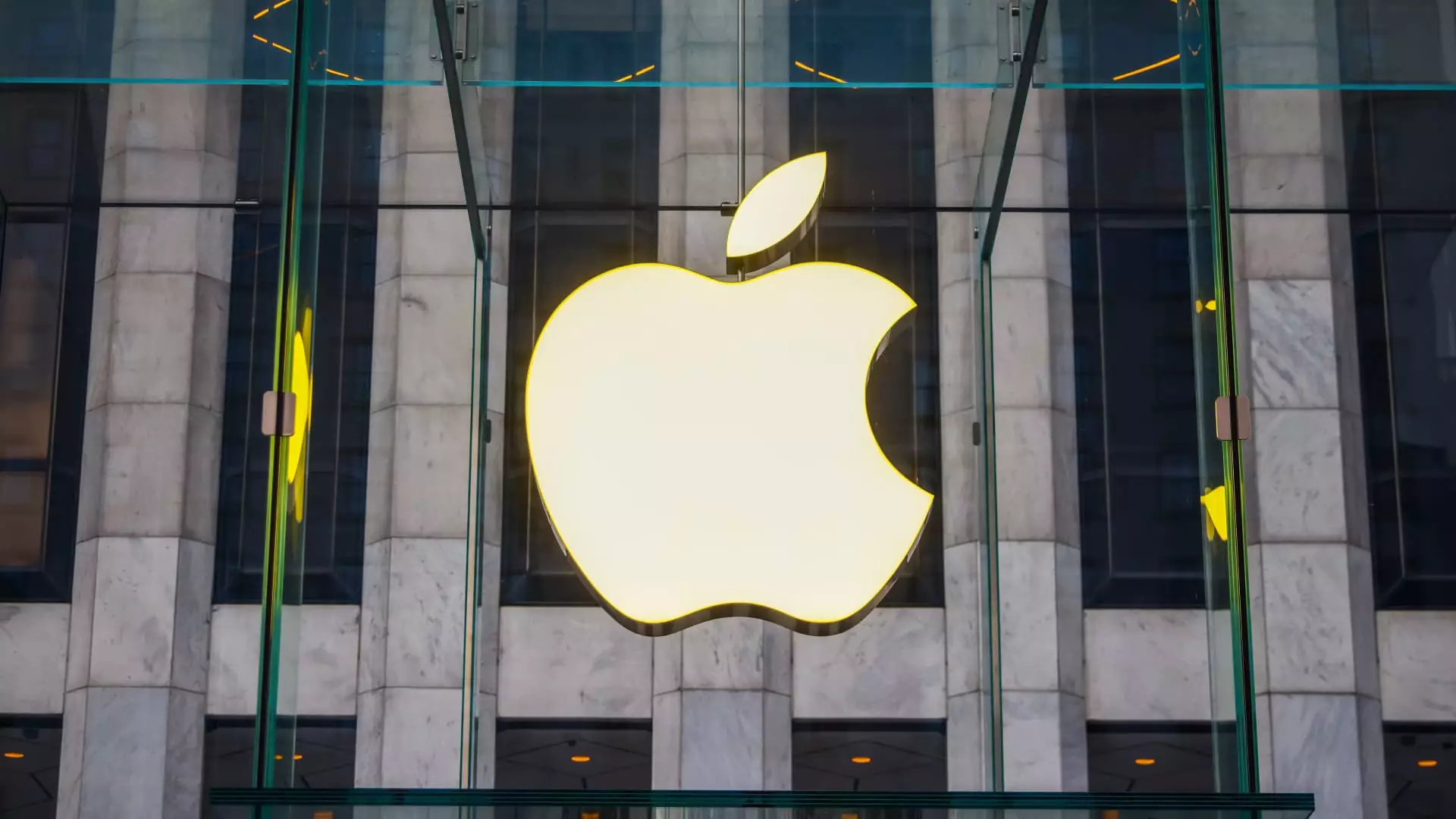As another day unfolds in the financial world, Berkshire Hathaway’s ongoing alterations to its Apple Inc. shareholdings have ignited discussions among investors and analysts alike. The latest earnings report, released by Warren Buffett’s holding company, disclosed a significant reduction in its stake in Apple by approximately 25% during the third quarter, dropping its ownership to about $69.9 billion in value. Such movements are not just routine financial maneuverings; they offer an insightful glimpse into broader market perceptions, corporate strategies, and investor behavior.
Buffett’s decision to lessen his position in Apple raises essential questions about the motivations behind such actions. Is it a sign of dwindling confidence in the tech giant’s performance, or could it simply be a tactical decision to realize profits after a period of significant appreciation in Apple’s stock price? Despite these concerns, the market reaction appears muted, highlighting a stark contrast between Berkshire’s strategy and the general investor sentiment. Apple remains a cornerstone of Berkshire’s portfolio, representing its most substantial investment, which indicates an ongoing belief in the company’s long-term potential.
The aftermath of the announcement has seen Apple stock experience a minor dip of 1% in trading—an initial response to the news from Wall Street. Prior to this drop, Apple shares were already treading water, facing a three-day losing streak leading into the earnings report. Closing at approximately $223, the stock has fallen 5.5% from its peak of over $236 just a week prior, a situation reflecting the volatile nature of tech stocks, especially when influenced by high-profile trading decisions.
Despite Apple’s recent quarterly earnings report surpassing expectations for both revenue and earnings per share, analyst sentiments about the stock remain ambivalent. Loop Capital, for example, slashed its price target for Apple shares from $300 to $275, suggesting a cautious outlook—even though this still implies a potential upside near 24% from its recent closing price. Conversely, Morgan Stanley analysts have praised Apple for achieving peak operating margins not seen in a decade, showcasing a diverse set of opinions on the tech titan’s performance and future.
Additional insights from Bank of America reveal a surge in global App Store revenue and downloads, credited as positive indicators for Apple’s growth trajectory. These factors suggest that despite Berkshire’s divestment, Apple continues to hold strong in certain operational metrics. This dichotomy between analyst projections and recent financial successes creates a complex narrative surrounding investor confidence and perceived value.
In a landscape inundated with frequent news cycles about Apple, the challenge for investors is to focus on long-term potential rather than immediate fluctuations instigated by corporate decisions. Jim Cramer, a prominent market commentator, encapsulates this philosophy by urging investors to ignore the noise and adopt a “buy-and-hold” strategy. His perspective posits that Berkshire’s decision to scale back its Apple holdings should not be mistaken for a reflection of the company’s intrinsic health.
So where does this leave Apple and its shareholders? While Berkshire Hathaway’s reduced holding may intrigue some investors, it also highlights the complexity of investing in high-growth tech stocks like Apple, which constantly face scrutiny and external pressures. As financial landscapes evolve, so too do strategies, with seasoned investors like Buffett aware that realizing profits from successful investments is part of sound financial management. Moreover, with the uncertainty surrounding tech stocks, guided voices like Jim Cramer continue to remind investors of the value in strategy over reaction. In this ever-changing market, focusing on the fundamental strengths of Apple, paired with a long-term investment vision, may be the most prudent path forward.

